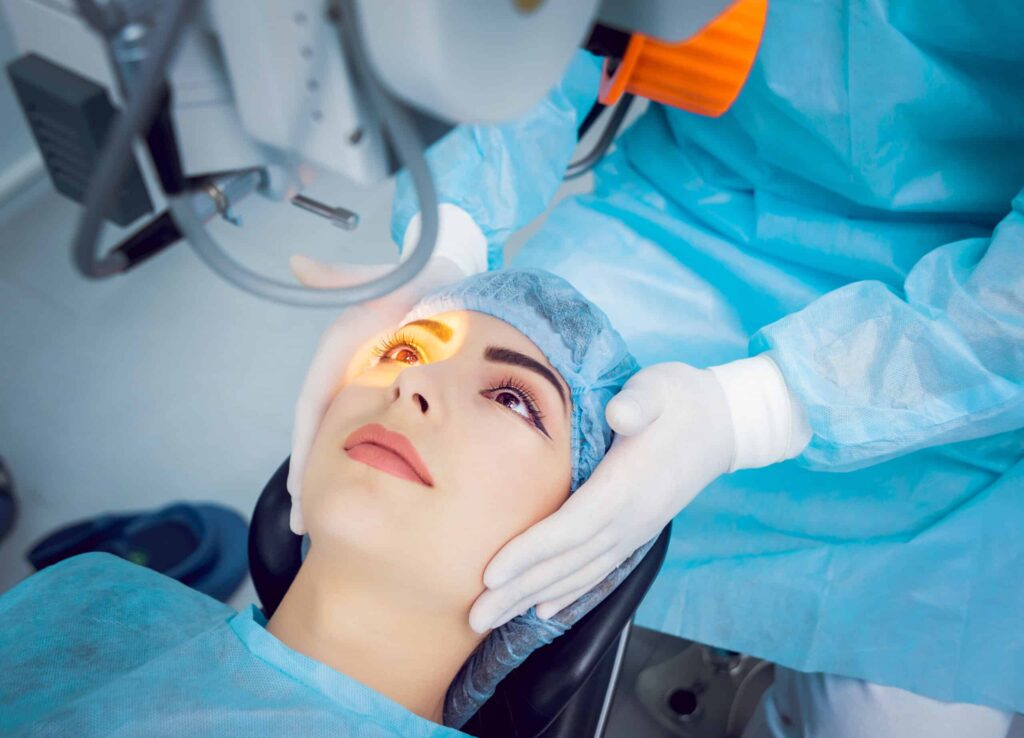Who can and cannot undergo LASIK surgery
LASIK surgery is a commonly performed refractive surgery that can correct vision problems such as myopia, hyperopia, and astigmatism. It involves reshaping the cornea, the clear, dome-shaped surface at the front of the eye, to improve the way light enters the eye and is focused on the retina. The popularity of LASIK surgery has grown significantly over the years, with many people looking to improve their vision through this procedure. However, it is important to note that not everyone is eligible for LASIK surgery. In this article, we will discuss who can and cannot undergo LASIK surgery.
Eligibility for LASIK Surgery
LASIK surgery is a viable option for many people who experience common vision problems. However, there are certain criteria that must be met for a person to be eligible for LASIK surgery:
Age: LASIK surgery is generally not recommended for individuals under the age of 18 because their eyes may not have fully developed yet. Additionally, people over the age of 40 may experience age-related changes in their eyes that can affect the outcome of the surgery.
Stable Vision: The person must have had stable vision for at least a year before surgery. Any fluctuations in vision can indicate underlying health issues such as diabetes or glaucoma, which can impact the success of the surgery.
Good General Health: The person should be in good overall health and have no underlying medical conditions that could affect the success of the surgery. This includes conditions such as autoimmune diseases or diabetes, which can affect the healing process.
Healthy Eyes: The person should have healthy eyes, free of any eye diseases or conditions that could affect the outcome of the surgery. This includes conditions such as keratoconus, glaucoma, or cataracts.
Realistic Expectations: The person should have realistic expectations for the outcome of the surgery. While LASIK can improve vision, it is not a guarantee that the person will have perfect vision. Some people may still need to wear glasses or contact lenses after the surgery.
Ineligibility for LASIK Surgery
While LASIK surgery is a safe and effective treatment option for many people, there are certain factors that can make a person ineligible for the procedure. These factors include:
Pregnancy: Pregnant women are not eligible for LASIK surgery because hormonal changes during pregnancy can affect the stability of the cornea and the healing process after surgery.
Nursing: Women who are nursing may not be eligible for LASIK surgery, as the medications used during the procedure can pass through breast milk.
Certain Medical Conditions: People with certain medical conditions, such as diabetes, autoimmune diseases, or immunodeficiency disorders, may not be eligible for LASIK surgery. These conditions can affect the healing process after surgery and increase the risk of complications.
Eye Diseases or Conditions: People with certain eye diseases or conditions, such as keratoconus, glaucoma, or cataracts, may not be eligible for LASIK surgery. These conditions can affect the shape of the cornea or the health of the eye, making it unsafe to perform the surgery.
Certain Medications: Some medications, such as steroids, can affect the healing process after LASIK surgery and may make a person ineligible for the procedure.
Thin Corneas: People with thinner corneas may not have enough corneal tissue for the treatment. For these patients we have alternatives like ICL and RLE.
LASIK surgery can be an effective treatment option for many people who experience vision problems. However, it is important to understand who can and cannot undergo the procedure. A person’s eligibility for LASIK surgery is determined by several factors, including age, stable vision, good general health, healthy eyes, and realistic expectations. Conversely, factors such as pregnancy, nursing, certain medical conditions or medications, eye diseases or conditions, and thin corneas may make a person.




